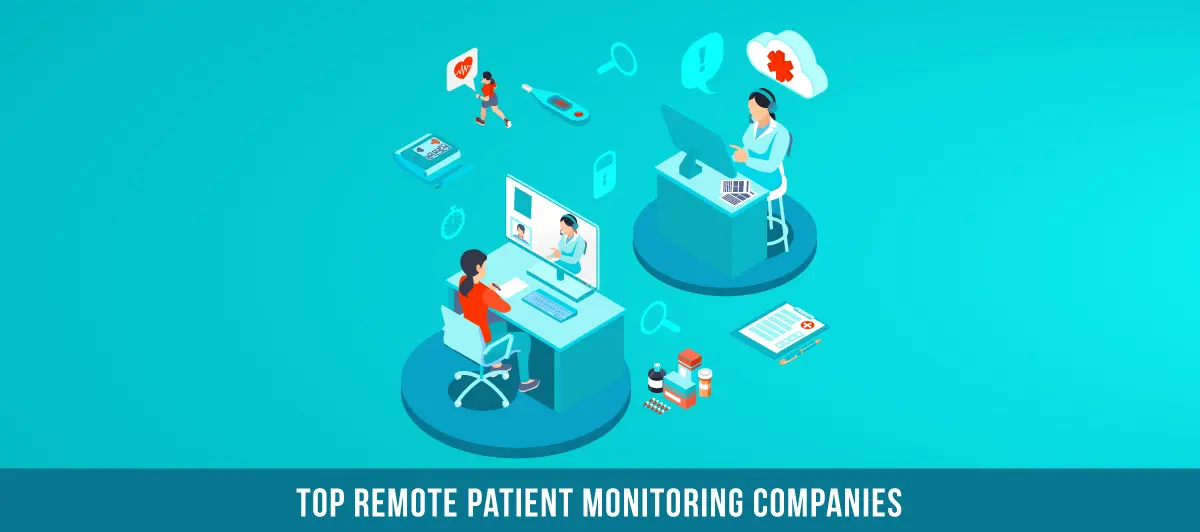10 World’s Best Remote Patient Monitoring Companies In 2024
Quick Summary: In this era of transformation, the healthcare industry needs a strategic move, and that’s where remote patient monitoring stands. But to implement this move, one needs the best remote patient monitoring company, and we are writing this article to provide you with a list of top patient monitoring companies. Additionally, here, we will discuss everything about remote patient monitoring. So, keep reading and get better at patient health outcomes!
Introduction
As the world is evolving towards a technological pace, every industry is taking a step ahead toward a transformation; one of the most effective ways for the transformation of chronic care management is employing Remote Patient Monitoring. Due to The use of RPM, chronic diseases decreased to Around 60% of the world’s population. Hence, this is pressing the need for innovative healthcare solutions.
RPMs market is rising as they offer innovative solutions that allow patients to manage their health from the comfort of their homes. By the end of 2024, the RPM market will reach $31.3 billion, with an annual growth rate of 17.5%. And this says it all about how important it is to use an RPM platform.
To harness RPM services, you need to choose the best remote patient monitoring companies, and that’s where healthcare providers are stuck the most. But do not worry! We will have your back as we have come up with top-notch remote patient monitoring companies.
In this blog, we will discuss all about RPM, from the meaning to the top-notch remote patient monitoring companies.
Keep reading!
What is Remote Patient Monitoring?
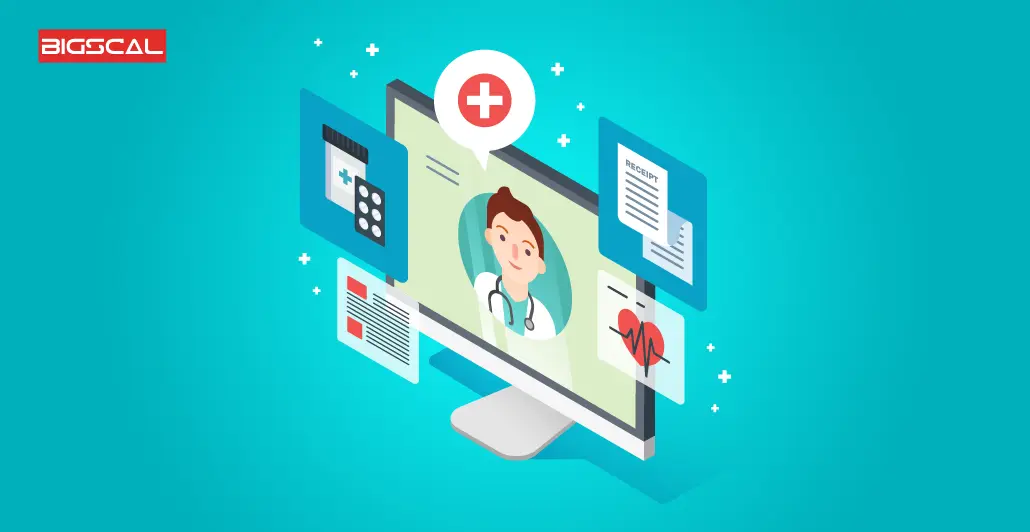
Remote patient monitoring (RPM) is a patient management software. It is a healthcare practice that allows healthcare providers to monitor patient’s health data and vital signs from a distance. This is typically done through the use of medical devices and technology such as wearable sensors, smartphones, or other monitoring equipment.
RPM enables healthcare professionals to track a patient’s condition in real-time and make informed decisions about their care. It is especially useful for managing chronic conditions, post-surgery recovery, and keeping a close watch on patient who are at risk or need ongoing care outside of traditional healthcare settings.
What are Remote Patient Monitoring Companies?
Remote patient monitoring (RPM) companies are organizations that provide technology and services to enable healthcare providers to monitor and manage patients’ health remotely. They offer a range of solutions that often involve wearable devices, sensors, and software platforms.
These companies help health care professionals track patients’ vital signs, symptoms, and health data in real-time or periodically, allowing for proactive intervention and better management of chronic conditions.
RPM can improve patient outcomes, reduce hospital readmissions, and enhance the overall quality of care. Some well-known RPM companies include Philips, Biotelemetry, and Medtronic, among others. In a nutshell, implementing it is like having the benefit of a patient portal.
Some Common Remote Patient Monitoring Devices And Software
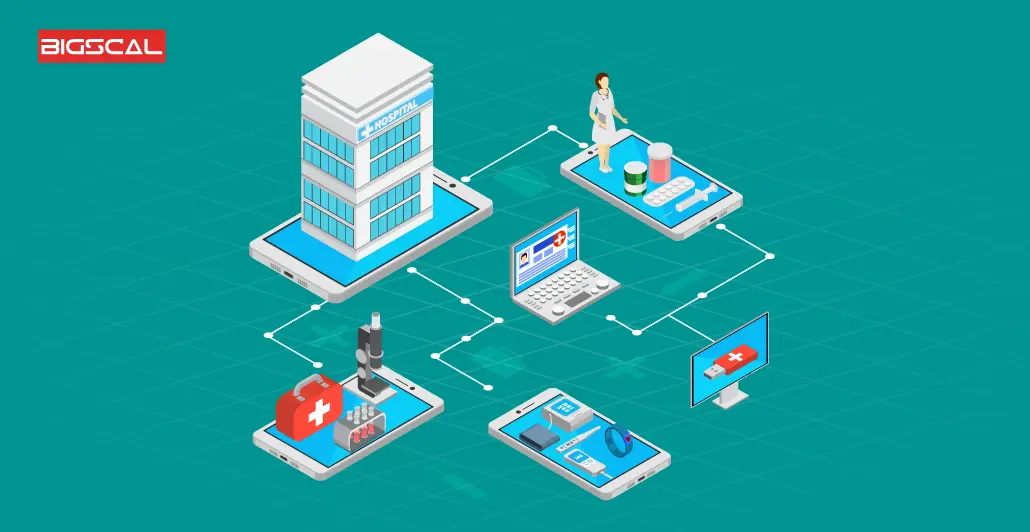
Remote Patient Monitoring Devices
There are devices that top remote patient monitoring devices manufacturers build these RPM devices:
- Blood pressure Monitor
- Glucose Monitors
- Pulse Oximeter
- ECG Monitors
- Weight Scales
- Peak Flow Meters
- Activity Trackers
- Medication Dispensers
- Smart Thermometers
Remote Patient Monitoring Software
There are some electronic remote patient monitoring solutions:
- Telehealth Platforms
- Patient Portals
- Data Analytics Tools
- Mobile Apps
- Electronic Health Record (EHR) Integration
- Alert System
- Remote Monitoring Dashboard
- Cloud Based Solutions
- Secure Communication Tools
- Machine Learning and AI Algorithms
Benefits And Functions That Remote Patient Monitoring Companies Provide
So, now when you understand the concept of the RPM program and RPM companies. Now let’s understand the main benefits of RPM companies.
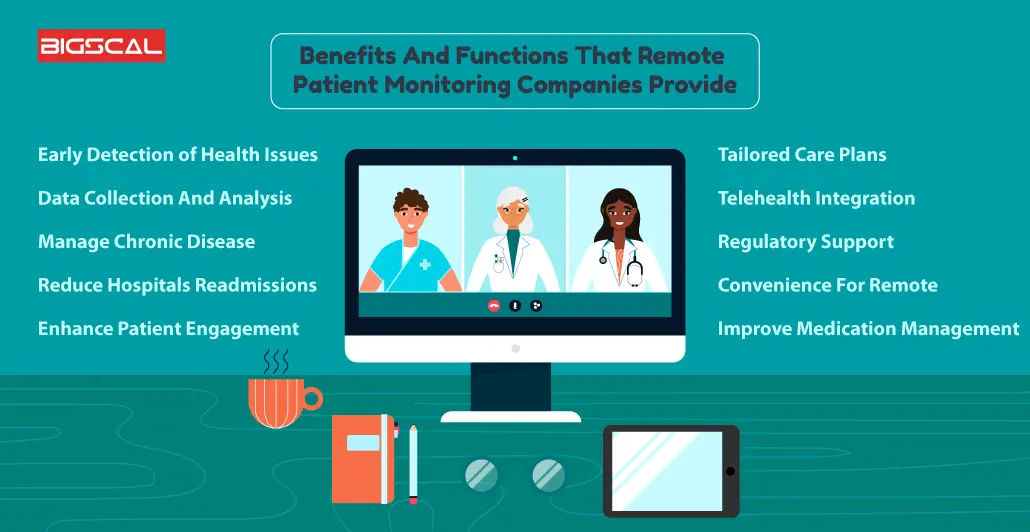
Early Detection of Health Issues
Remote patient monitoring companies use advanced technology to keep an eye on patients’ health from a distance. This means they can predict the disease. For instance, if someone has a heart problem, they help to track heart rate and notice any unusual changes. This early detection is like having a health guardian who can alert the doctor if something is not right.
Hence, with the early detection care management of any complex disease or conditions can save life. It helps prevent small issues from becoming big ones, keeping you healthier and reducing hospital visits.
Data Collection And Analysis
These companies collect data about your health. Consider it like your health diary, but super smart. They record things like your blood pressure, glucose levels, and more. Then, they use software to analyze this data.
It’s like having a detective who can spot patterns and trends in your health. This analysis helps your doctors make better decisions about your future care. They can personalize your treatment, adjusting it to your specific needs. Which leads to more effective and efficient healthcare.
Manage Chronic Disease
These companies enable patients to monitor their health conditions from the comfort of their homes. Devices like blood pressure monitors, glucose meters, and wearable fitness trackers allow continuous tracking of vital health data.
This empowers patients and their healthcare providers to identify potential issues early, adjust treatment plans based care of them, and provide timely interventions. This innovative approach results in better disease management, improved quality of life, and reduced healthcare costs.
Reduce Hospitals Readmissions
Remote monitoring systems provide a safety net for patients transitioning from hospital to home. By remotely tracking a patient’s vital signs and health metrics, health care professionals can detect deteriorating health conditions and provide prompt interventions.
Thereupon, it reduces the likelihood of hospital readmissions. Which ensures patient recover in the comfort of their homes. While also easing the burden on healthcare facilities and lowering costs.
Enhance Patient Engagement
These companies play an important role in boosting patient engagement by enabling individuals to actively participate in their healthcare. In addition, they provide user-friendly rpm devices and apps to monitor their vital signs, chronic condition, and overall health from the comfort of their homes.
Hence, this increased involvement encourages patients to take charge of their well-being, establish a sense of responsibility and motivation. Moreover, remote monitoring systems facilitate timely communication between patient and the healthcare provider or professional, enhancing the overall patient experience and ensuring that medical guidance is readily available.
Cost Reduction
Remote patient monitoring companies bring about substantial cost savings in the healthcare systems. By enabling the early detection of health issues and preventing hospital readmissions, these companies help the health recovery solution reduce the financial burden on healthcare systems.
Patients who are actively monitored remotely with a monitoring system experience fewer emergency room visits and hospital stays, redirecting to lower healthcare costs. Additionally, these systems enhance the efficiency of healthcare delivery by streamlining processes, optimizing resource allocation, and reducing the need for in-person visits.
This not only benefits health care providers but also makes healthcare more affordable and accessible for patients, particularly those with chronic conditions.
Tailored Care Plans
These companies and physicians create personalized care plans for patients, considering their unique medical needs. In addition, these plans include specific monitoring parameters, reminders, and educational resources. It ensures that patients receive the right level of attention, care management and support.
Moreover, this individualized approach enhances patient satisfaction, engagement and compliance with their treatment. And it leads to better health outcomes.
Telehealth Integration
RPM companies integrate seamlessly with telehealth services. It allows patients to consult with health and care teams and professionals from the comfort of their homes. Through video calls or messaging, patients can discuss their progress, ask questions, and receive guidance from the care team as to their condition.
Furthermore, this not only improves access to care but also reduces the need for in-person visits, making healthcare more convenient and cost-effective.
Compliance and Regulatory Support
Remote patient monitoring companies help other health systems and care providers stay compliant with healthcare regulations and standards. They ensure the security of patient data, which is vital for protecting sensitive medical information.
Additionally, these companies also help in meeting regulatory requirements, like those related to telemedicine and patient privacy, reducing the risk of legal issues.
By offering compliance support, they allow healthcare teams to focus on patient care rather than navigating complex regulations. Which is important for a smooth and trustworthy healthcare system.
Convenience For Remote or Rural Patients
RPM companies bring healthcare closer to those living in remote or rural areas with their monitoring system. They provide patients with tools and technology to monitor their health from the comfort of their homes. Thereupon, it reduces the need for frequent travel to distant healthcare facilities.
Additionally, this convenience is especially valuable for patients with chronic conditions who require regular check-ups. It ensures that individuals in rural areas can access timely medical attention and maintain their well-being. Moreover it improves the overall quality of healthcare for everyone, regardless of their location.
Improve Medication Management
Remote patient monitoring companies play a key role in enhancing medication management. They offer solutions that help patients take medication regimens. This includes medication reminders, dosage tracking, and notifications to both patients and health care providers. Which ensures medication schedules followed.
Furthermore, by improving medication management, these companies contribute to better behavioral health outcomes. Patients can have greater confidence in their treatment plans. It improve overall health and a higher quality of life.
Read more: Types Of Telemedicine: Benefits, Types, And Examples
Top 10 Remote Patient Monitoring Companies in the World
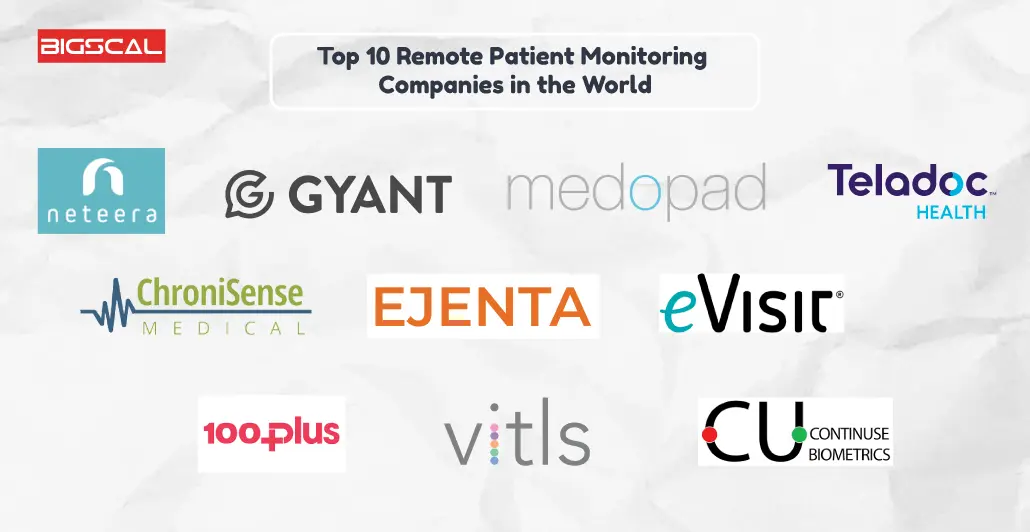
The end motive of this blog is to give you a list of the world industry’s best remote patient monitoring companies. So, here we are, with the name of top-notch RPM companies. See below:
Neteera
Neteera is a remote patient monitoring company that is popular because of its innovative technology. They use millimeter-wave radar to track patient’s vital signs without physical contact. This means no need for uncomfortable sensors or wires. It’s like a health check-up from a distance.
Furthermore, Neteera’s system can detect heart rate, blood pressure monitor respiration, and even movement, making it ideal for monitoring patients in their own homes. This technology is especially helpful for older adults or those with chronic conditions who want to maintain their independence while still receiving medical attention.
The Specialties of Neteera
- Specializes in non-contact monitoring technology.
- Focuses on vital signs monitoring, including respiration and heart rate.
GYANT
GYANT provides remote patient monitoring services. It uniquely uses artificial intelligence. They create virtual health assistants that communicate with patients through text messages. These assistants help patients manage their health by providing information, answering questions, and giving reminders.
If you use GYANT, it will work as a doctor, but it will be in your hand’s control. It follows a user-friendly and accessible approach. Thereupon, it allows ease to users for engaging in their healthcare. Furthermore, it is an excellent option for individuals who prefer a conversational and tech-savvy way to monitor their health.
The Specialties of GYANT
- Offers AI-driven chatbots for patient’s engagement and triage.
- Provides personalized healthcare recommendations.
Medopad
Medopad is a healthcare technology company that helps doctors to keep an eye on their patient’s health, even when they are not in the hospital. In addition, they use smart RPM devices like smartphones and wearables to collect important data, like heart rate, SPO2, Blood pressure, etc. Then, these data are sent to doctors so they can track their patient’s condition and predict the issues.
Thereupon, this is really like a savior for people who have severe disease or who need regular check-ups but are not able to reach hospitals for some reason.
The Specialties of Medopad
- Specializes in remote monitoring for chronic conditions.
- Offers a patient-centric platform for data collection and analysis.
Teladoc
Teldoc is like having a doctor’s appointment over the phone or through video chat. Patients do not need to go to clinical monitoring solutions, and that is very convenient. When they feel sick, have an emergency, or have questions, they consult a doctor from their home’s comfort. Doctors can give them advice, diagnose issues, and provide prescriptions if necessary.
Furthermore, it’s like a virtual doctor’s office that’s always open. They can help with a wide range of issues, from cold to mental health concerns, making it easier for people to get the care they need, especially when it’s hard to visit a physical clinic.
The Specialties of Teladoc
- Largest telehealth provider globally.
- Offers virtual doctor visits and telemedicine services.
ChroniSense Medical (now Polso)
hroniSense Medical, which is now Polso, is a company that specializes in remote patient monitoring. They provide physicians with technology that allows doctors providers to keep a close eye on their patient’s health from a distance. This service is especially important for individuals with chronic conditions like diabetes or heart disease.
In addition, with their devices and software, patients can measure vital signs like blood pressure, glucose levels, and more, all from remote locations. It transmits the data securely to health care professionals who can assess it in real-time.
Thereupon, this not only saves time but also helps in early detection of issues, preventing hospitalizations.
Moreover, Polso’s user-friendly approach to remote monitoring ensures that patients can actively participate in their health care. And it leads to better outcomes and improved quality of life for those managing chronic conditions.
The Specialties of ChroniSense Medical
- Develops wearable monitoring devices.
- Specializes in continuous glucose monitoring for diabetes management.
eVisit
eVisit is one of the most popular among the remote care and patient monitoring companies. It is transforming the way patients interact with doctors. They offer clients a telehealth platform that simplifies virtual medical visits. It’s like having a doctor’s appointment, but you can consult with doctors from your computer or smartphone.
The motive is to make healthcare more accessible and convenient. Patients can consult with doctors for various medical issues without the need for physical visits. This is especially handy in situations where travel to a medical facility is challenging or when you need quick medical advice.
Additionally, eVisit’s platform isn’t just for patients; it also helps healthcare practices streamline their operations. It includes features like scheduling, billing, and secure communication, making it easier for doctors to connect with their patients.
Moreover, eVisit is making healthcare more patient-centric and adaptable to our increasingly transforming digital world, providing healthcare services when and where you need them.
The Specialties of eVisit
- Telehealth platform for remote consultations and monitoring.
- Focus on improving patient interest and access to digital therapeutics.
- Provides tools for virtual visits, scheduling, and billing.
Ejenta
Ejenta helps doctors to their patients from afar. They use special technology to collect data from medical devices like heart monitors and send it to the doctors. So, with this way, the doctors can check if everything is okay with their patients, even if they’re far away.
Furthermore, Ejenta’s goal is to make it easier for patients to get the care they need without always going to the hospital. They do this by using smart technology to connect patients and doctors.
The Specialties of Ejenta
- Specializes in remote health monitoring using wearable devices and AI.
- Real-time tracking of patient data for doctors.
- Emphasis on data analytics and predictive insights.
100Plus
100Plus is all about keeping people healthy. They use technology to track important health information for patients. For example, they can monitor things like blood pressure and remind people to take their medicine. If a patient’s condition doesn’t look right, they let the patient and their doctor know. This helps people stay aware of their condition and catch any problems early.
100Plus is like a digital assistant for your health. It ensures you’re doing everything you can to stay well. Moreover, their goal is to keep people feeling their best. And also to give doctors the tools they need to provide great care remotely.
The Specialties of 100Plus
- Remote patient monitoring with a focus on chronic disease management.
- Offers a range of connected devices for vital sign tracking.
- Alerts and data sharing to support timely interventions.
Vitls
Vitls is a pioneering company that specializes in remote patient monitoring or virtual care. In simple terms, they create smart wearable devices that help doctors track patient’s condition from a distance. Additionally, These gadgets are like health detectives, tracking vital signs such as heart rate, temperature, and respiratory rate.
This data is sent to doctors in real time. Which ensures they can detect any disease early. It’s like having a virtual doctor’s visit right from your home.
The Specialties of Vitls
- Remote monitoring through a wearable continuous vital sign monitor.
- Emphasis on early detection of patient deterioration.
- Vital sign data transmitted to healthcare teams in real-time.
ContinUse Biometrics (Cu-Bx™)
ContinUse Biometrics is all about making healthcare more convenient and precise. They developed a technology called Cu-Bx™ that can monitor a patient’s advanced sensors that can measure things like glucose levels and blood pressure through touch health by simply touching it. It’s advanced sensors that can measure things like glucose levels and blood pressure through touch.
This is good for people with chronic conditions. Instead of painful pricks or constant doctor visits, they can stay updated about their condition in a much easier way.
The Specialties of ContinUse Biometrics (Cu-Bx™)
- Specializes in non-invasive, continuous glucose monitoring.
- Aims to improve diabetes management through real-time glucose data.
- Wireless sensor technology for seamless monitoring.
Need A Remote Patient Monitoring Software? See How Can Bigscal Help You
If you need remote patient monitoring software or solutions or a patient case management software, we can help you. We specialize in providing user-friendly remote patient monitoring programs that help you to stay updated about your patient’s health remotely. Additionally, our RPM platform ensures easy use for doctors and patients.
Our approach focuses on making remote monitoring accessible and efficient. Their platform allows health care professionals to stay connected with patients, improving overall health outcomes. So, whether you’re a health care provider or someone who needs monitoring, Bigscal’s software can help you take the hassle out of remote patient monitoring and virtual care.
Conclusion
Remote patient monitoring has evolved significantly in 2024, with numerous companies at the forefront of this transformative health care landscape. These top 10 companies are continually harnessing technology to enhance patient care, improve outcomes, and empower individuals to take charge of their health from the comfort of their own homes.
As we move forward, the link between innovation and healthcare will continue to shape the future of remote patient monitoring program, ensuring better, more accessible healthcare for all.
FAQ
What is the most popular remote patient monitoring?
There are many companies that are popular for RPM and top three of them are following:
- Medtronic CareLink
- PatientConnect by Health Recovery Solutions (HRS)
- Masimo SafetyNet by Masimo
What is the fastest growing remote patient monitoring company?
100Plus is the fastest-growing remote patient monitoring provider.
How much can you make with remote patient monitoring?
Earnings in remote patient monitoring can vary widely depending on factors like the company you work for, your role, and geographic location. Healthcare professionals involved in monitoring may earn competitive salaries, while remote monitoring companies can generate revenue through service subscriptions.
How much does Medicare pay for remote patient monitoring?
Medicare typically reimburses healthcare providers for remote patient monitoring services. Medicare pays for various remote monitoring services, with reimbursement rates subject to change. Healthcare providers should refer to the latest Medicare guidelines and codes to determine the current payment rates for remote patient monitoring.
What are remote patient monitoring services?
Remote patient monitoring (RPM) services involve the use of technology to collect and transmit medical data from patients in one location to healthcare professionals in another. This allows for continuous monitoring of a patient’s vital signs, symptoms, and health metrics without the need for in-person visits. RPM services often include devices like wearable sensors, mobile apps, and telehealth platforms to facilitate remote healthcare management, helping patients and providers to track and manage chronic conditions, recover from surgeries, or monitor various health parameters.
